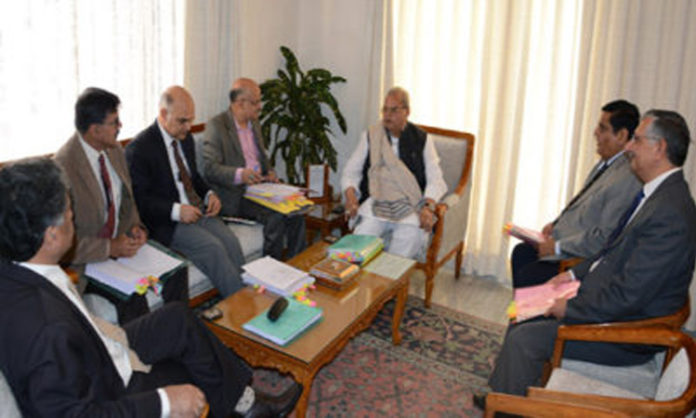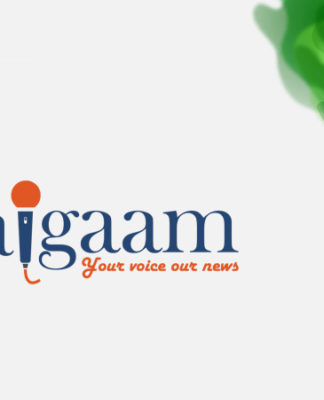SAC approves Srinagar Master Plan-2035
New Master Plan includes 766 Sq Km area for projected population of 3.5 mn
JAMMU, FEBRUARY 21: The State Administrative Council (SAC) under the chairmanship of Governor, Satya Pal Malik has approved Srinagar Master Plan-2035 along with the recommendations by the Committee constituted by Government for the scrutiny of objections and suggestions received from stakeholders.
Master PlanSrinagar-2035 is a comprehensive planning exercise for ensuring sustainable development of the Srinagar Metropolitan Area spread over 766 sq. km. This is the third statutory planning exercise carried out in the last forty-five years to achieve city’s sustainable and sustained physical and economic growth.
The Master Plan has been prepared for a population of around 3.5 Million (35 Lakh) by 2035. The Master Plan has a Planning Area of 766 Sq. Km which stands notified vide SRO-429 dated 21.10.2014 including the municipal areas of Srinagar Municipal Corporation and that of Budgam, Ganderbal, Pampore, Khrew ULBs and additional 160 villages as outgrowths in 12 tehsils of Six districts viz; Srinagar, Budgam, Ganderbal, Pulwama, Bandipora and Baramulla.
A comprehensive public policy document, the Master Plan is in sync with ground realities which show a major shift from an archaic planning approach in terms of its land-use policy, development regulations, and mixed land-use regulations towards progressive planning.
The Master Plan-2035 enshrines a shared vision for the future of Srinagar city and recommends specific actions for its realization. The Master Plan Srinagar is a long-term perspective plan for guiding the sustainable planned development of Srinagar Metropolitan region. This document lays down the planning guidelines/policies/development code and space requirements for various socio-economic activities supporting the city population during the plan period of twenty years. It will also be the basis to meet the infrastructure requirements and will serve as a basic pattern of framework within which the Zonal Plans of the local area shall be formulated.
The draft Master Plan was debated extensively in the Housing & Urban Development Department, placed for reviews and comments before a panel of experts having relevant subject specialization and field experience in environment, heritage, disaster management, transportation, urban sociology, urban design etc. A series of seminars, workshops and one-to-one discussions were also held both within and outside the State during the finalization of the Master Plan. Technical inputs were obtained from experts which included eminent faculty members of School of Planning and Architecture (SPA), New Delhi and Chief Planner, Town & Country Planning Organization, New Delhi.
The Master Plan-2035 has many firsts which makes it a unique exercise like Unique Development Code, use of GIS technology, Transfer of Development Rights (TDRs), Green Floor Area Ratio (FAR), mapping of all ecologically sensitive areas, Urban Greens, Town Planning Schemes (TPS) etc.
Pertinent to mention that the Master Plan is in sync with the Smart City proposals approved by the Governor’s Administration earlier.
Srinagar, Jammu to be brought on Mass Rapid Transit, Metro map
SAC approves Mass Rapid Transit Corporations for twin capital cities to address traffic woes, facilitate urban mobility
JAMMU, FEBRUARY 21: The State Administrative Council (SAC) under the chairmanship of Governor, Satya Pal Malik approved the proposal for incorporation of two Corporations by the name “Jammu Mass Rapid Transit Corporation Private Limited” and “Srinagar Mass Rapid Transit Corporation Private Limited” along with the Memorandum of Association (MoA) and Articles of Association (AoA) of these Corporations.
These Corporations which will be headed by the Administrative Secretary Housing and Urban Development Department will have on its Board, Administrative Secretaries of Finance and Transport; Transport Commissioner; CEOs of Economic Reconstruction Agencies and Metropolitan Authorities; and other experts besides nominee of Ministry of Housing and Urban Affairs.
The Corporation will have Chief Executive Officers to provide requisite leadership. The Corporations will also have Manager, Company Secretary and Chief Financial Officer to be appointed by the respective Boards.
These Corporations will be extended arms of the Metropolitan Authorities (MRDAs), recently constituted by the Governors Administration, and will supplement these authorities especially in areas related to Multi-Modal Transport System (MMTS) and Mass Rapid Transit System (MRTS).
The two Corporations will be “Body Corporates” with distinct seals and private limited but fully owned by the Government of Jammu and Kashmir. The Corporations will have initial authorized share capital of Rs 10 Crore divided into 1 crore shares of Rs 10 each which will be subscribed fully by the State Government. The authorized capital can be increased or decreased at any later stage depending on needs of the two Corporations.
These Corporations will be mandated to address the issues of urban mobility in the State in a holistic manner by providing safe, affordable, reliable and sustainable access for the city inhabitants to jobs, education, recreation etc. The Corporation will ensure an efficient well integrated and intelligent multi-modal public transport system for enhanced and hassle-free mobility in the Cities.
The Corporations will offer facilities in the form of running taxicabs, lorries, buses, cars, trucks, station wagons, motors, railways, rail motors from one place to another as intercity or intra-city services or BRTS feeder bus services for free movement of passengers, goods and merchandise.
The Corporations will undertake bus operations in Srinagar & Jammu to address the issues of congestion in the capital cities by inducting 300/400 buses each, which will provide a robust and reliable transportation system to the commuters.
The setting of the Corporations is expected to be a milestone in addressing the traffic issues in the State & Urban Mobility.
People living along International Border to get reservation benefits.









































